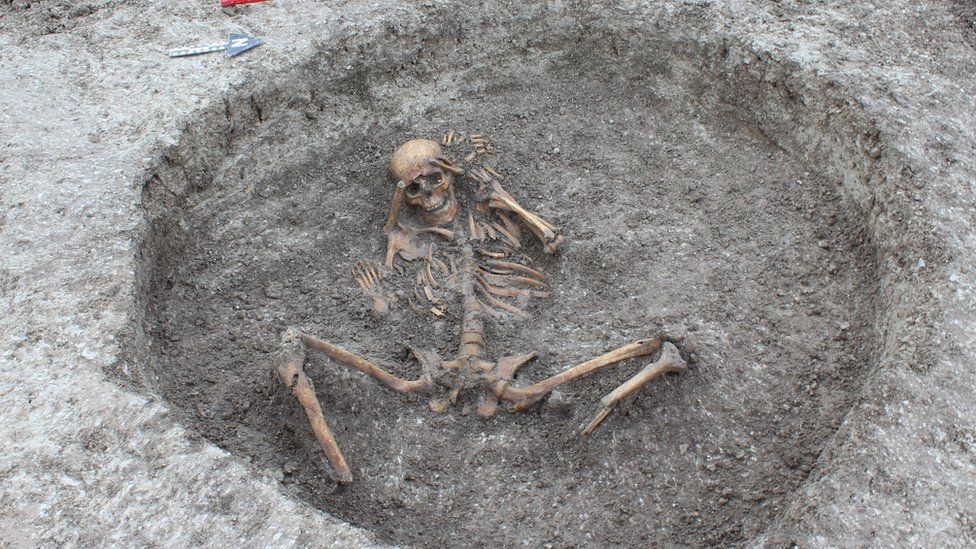Oxfordshire water pipe work uncovers ancient skeletons
- Published

Twenty-six human skeletons, thought to be about 3,000 years old, have been found during water pipe excavation work.
The discovery of the Oxfordshire settlement, believed to be from the Iron Age and Roman periods, was made during a Thames Water project.
Cotswold Archaeology, which excavated the site, believes some of the remains may have been from ritual burials.
The site is being excavated as part of a £14.5m water pipe scheme.
Cotswold Archaeology chief executive Neil Holbrook said: "The Iron Age site at Childrey Warren was particularly fascinating as it provided a glimpse into the beliefs and superstitions of people living in Oxfordshire before the Roman conquest.
"Evidence elsewhere suggests that burials in pits might have involved human sacrifice."
Alongside the human remains, archaeologists also found evidence of dwellings, animal carcasses, household items including pottery, cutting implements and a decorative comb.
The project in Childrey Warren is expected to ease pressure on a rare chalk stream.
The utility firm will now lay a 6km (3.7-mile) pipe, which will provide water to Oxfordshire villages from the River Thames, and not Letcombe Brook.